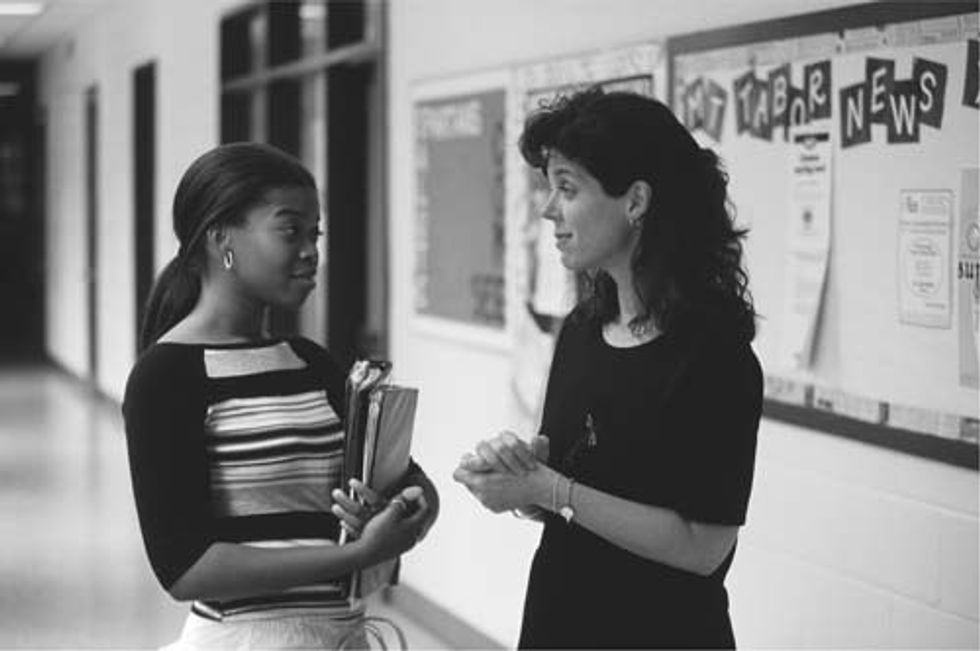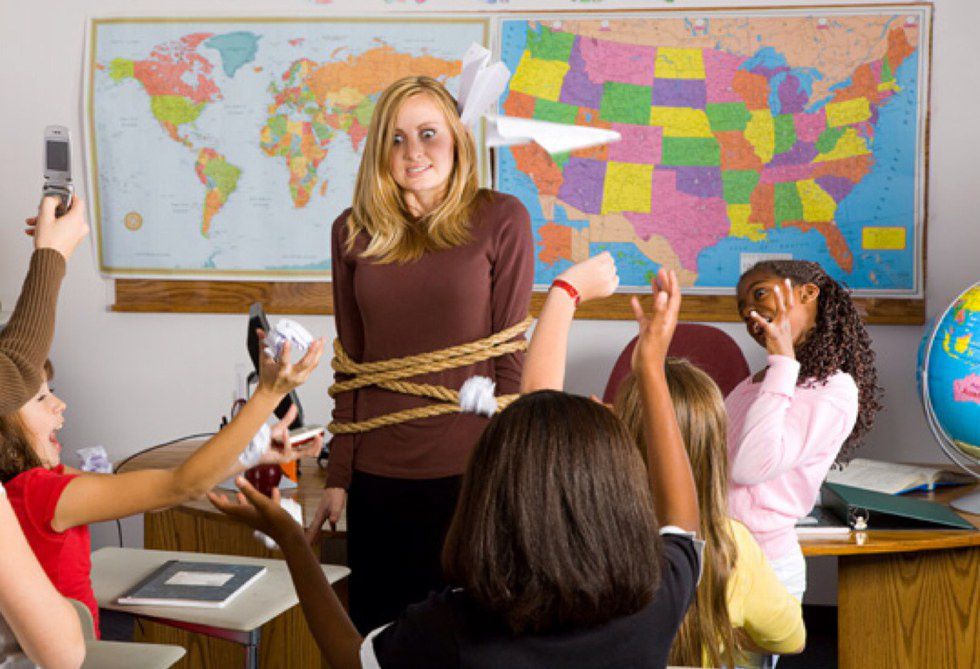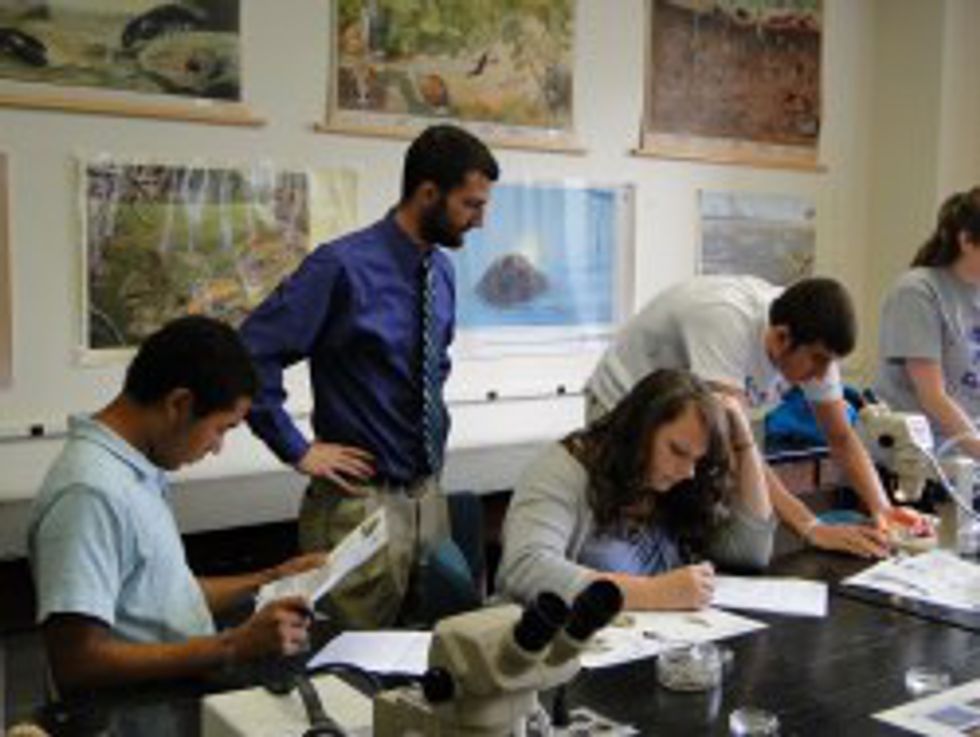You don’t go to school to learn how to become a substitute teacher. This is what I was told by one of the school districts I work for. And they’re absolutely right. It’s much harder than I ever expected it to be. In some ways, it’s harder than my student teaching experience was. I have been subbing for a little over a month now, and I have learned quite a bit in just this short amount of time. Here are some of the things…
1. Relationships are critical for teaching.
During my student teaching, I learned that learning can happen when students trust their teacher(s). Students are more likely to ask for help and really engage if they know that their teachers really care about them and are genuine with them. With substitute teaching, I have learned this lesson time and time again. Every day that you have a job, you are in front of a different group of students. Right away, you have to establish why you’re there and that you’re a trustworthy person. If that doesn’t happen, the whole class can fall apart. Your job as a substitute is to ensure that even though the students’ regular teacher is gone, learning continues in their absence. That can’t happen if you don’t have trust in the class.
2. There are certain age groups I’m just not cut out for.
I am licensed for English Secondary Education (middle school and high school), but most of the jobs that have been made available to me have been elementary school jobs. I have learned by working with this wide age range that I just don’t possess the patience to work with very young kids. Certainly, I can help with content that they’re learning whether that’s reading skills or math, but I always forget what kids of certain ages are capable of doing and can get frustrated when they don’t understand. I have a lot more patience for older students (ages 12 to 18) because they are learning about things that challenge me as a teacher and that I’m interested in learning even as an adult. It’s a lot more interesting for me personally.
3. On the other hand… I’ve found certain types of classes I enjoy.
While I’m very much settled in my ways in terms of what age group I like to work with, I do find it interesting to explore different subject areas within this age group. I was able to sub in a sixth grade classroom that still functioned a lot like an elementary school, though the students were a lot more independent. Surprisingly, I liked this style and would be happy to substitute for similar classes in the future. I was alo subbed for a paraprofessional for a seventh grade student in an ESL (English as a Second Language) Physics class. I’m 100% not a physics person (I’m still not sure how I made it through high school physics in one piece), but I really liked the ESL environment. I loved how the students were curious and how the teacher was able to have meaningful conversations with the students there while assisting students as they practice English within a subject area. That was such an amazing experience for me.
4. Some schools are a better fit than others.
I have been to schools that I absolutely adore. When I see a job at that school become available to me, I will drop everything to ensure that I am there. But then there are schools (and granted there are very few right now) where I have worked once and will never work for again. There are schools that better match up with my personal teaching style and that have rules for their students I personally agree with. When I see those schools requesting a substitute teacher, I will drop everything and sub for them, no matter the subject area or grade level (although I still prefer middle and high school of course). What I’m learning about this though, is that just because I have a teaching license doesn’t mean that I can (or should) teach absolutely everywhere. Not every school culture is the same and so I need to go to schools that work for me.
5. Behaviors will typically be higher with a sub and that requires a certain level of understanding.
I was at one of my favorite schools and another substitute was with me helping with that class. He didn’t have a lot of patience for the students there which bothered me. I can’t remember his background, but it seemed like he forgot what it was like to be 12 years old. Generally speaking, kids see a substitute teacher and they think “free day.” While this isn’t true, it can be an explanation for extra behaviors that come up during the day. They know you’re not their regular teacher and they know you don’t know the rules other than what their teacher told you. No matter how much I like a school, I have noticed that there is an extra level of crazy that happens when a sub walks in the room and I have learned to take it in stride and take steps to lessen that behavior. On top of this though, it’s not all about me. Students have lives of their own. Things happen at home and with friends that I just can’t control. Behaviors come with that too and I need to learn tools to handle such instances.
6. Trust your gut and have confidence.
Sometimes that one school comes along and totally shakes your confidence. This happened to me very recently. I left that school thinking that I was a terrible teacher and that I had just wasted the last four and a half years earning a teaching degree. That day was absolutely terrible and I’m not certain that a lot of learning happened in the teacher’s absence… but I have to trust in my own abilities and trust that I made the best decisions at the time. One bad experience, however horrific, does not define my teaching ability.
Being a substitute teacher has been an interesting experience for me-- I think that once I find a full-time position (whenever that is), these experiences will stick with me. They will only prepare me and make me a better teacher when I have my own set of students.
Please be nice to your substitute teachers.
























